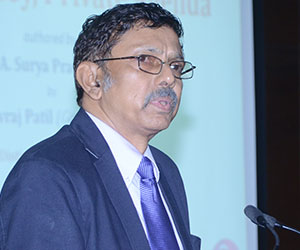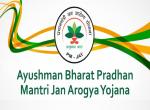The prevailing skepticism about whom the United Progressive Alliance-II (UPA-II) government will choose as the Comptroller and Auditor General of India following the retirement of the incumbent CAG Mr.Vinod Rai, is not without reason. Given the past record of the government in regard to such appointments and its discomfiture with the reports of the CAG on a host of issues including sale of 2G Spectrum, allocation of Coal Blocks and the scandalous manner in which in the rural employment scheme is being implemented, there are doubts about the government selecting an official who will steadfastly preserve the independence of the institution.
There has been much debate in the past on the mode of selection of the CAG and on the need to broad-base the selection process, but the government appears to be reluctant to let go of its prerogative.
The National Commission to Review the Working of the Constitution (NCRWC) deliberated on the procedure to choose the Comptroller and Auditor General. In its report, it said “A fairly persuasive school of thought has argued that to uphold transparency and integrity in public life, the appointment of the C&AG should not be the exclusive preserve of the executive but a committee consisting of the Prime Minister, the Union Finance Minister, the Speaker of the Lok Sabha, the Leader of the Opposition and the Chairman of the Public Accounts Committee should be empowered to make the appointment”.
It however stopped short of making that recommendation because it felt that “in our situation it would be counter-productive to undermine the constitutional and moral authority of the Prime Minister by stipulating a mechanism that would supplant his decision-making”. Instead, it recommended that a “healthy convention” be developed to consult the Speaker of the Lok Sabha before appointing the CAG. This would ensure that “the views of the Public Accounts Committee are also taken into account”, while choosing a person for that office.
The Commission submitted its report 11years ago, long before the ministers of UPA-II displayed brazen favouritism and rank irresponsibility in the sale of 2G Spectrum or coal blocks and Suresh Kalmadi presided over the Commonwealth Games Scandal. One can be fairly certain that Justice M.N. Venkatachalaiah, who Headed this Commission, and other members would have been far more circumspect on the issue of protecting the “moral authority” of the Prime Minister if they were to be writing the Commission’s report today.
In all probability, the scandals that have tumbled out of the government’s cupboards over the last two years and the political attack on the office of the CAG by ministers in the government would have persuaded the Commission to go along with the opinion expressed by Dr. P.B. Mathur, former Deputy CAG, in this regard in the consultation paper he submitted to the Commission. Dr. Mathur had said that in India, it would be necessary to keep the office of CAG outside the exclusive purview of the executive. “Recommendations regarding his appointment should be made by an independent committee. One could suggest that the committee should consist of the Prime Minister, Finance Minister, the Leader of the Opposition of the Lok Sabha and Chairman of the Public Accounts Committee. There is also need to prescribe qualification for appointment to the post and a person who has substantive experience of public sector accounting and auditing systems should only be appointed”.
The collegium approach to appointment of the CAG is nothing new. Several other democracies have already adopted it in one form or the other. Dr. Mathur explains that in the U.K, the Prime Minister and Chairman of the Committee on Public Accounts jointly select the CAG and get it ratified by the House of Commons. In Australia, he says, the CAG is appointed by the Governor General on the recommendation of the Minister, “after the Minister has referred his recommendation to the Joint Committee of Public Accounts and Audit and the Committee has approved the same”. Dr. Mathur says that in the U.S, the Comptroller General of the United States and the Assistant Comptroller General of the United States are appointed by the President with the advice and consent of the Senate. “The Congress participates in the selection of the Comptroller General by providing a list of candidates from which the President may choose and by confirming the appointment”.
Unfortunately, the Prime Minister has already rejected the idea of a collegium choosing the next CAG. Replying to a letter from a member of parliament, who suggested that a collegium be constituted, he said that the system in vogue over the sixty years has stood the test of time and there is no need to review it. The Prime Minister’s claim that the system of appointment of the CAG, which has been in vogue for long years, need not be revised, needs to be contested. As he is himself aware, the process of appointment of the Central Vigilance Commissioner has undergone a change in recent years. It is not what it used to be. Following directions from the Supreme Court, the union government has to now appoint a committee comprising the Prime Minister, the Home Minister and the Leader of the Opposition in the Lok Sabha to choose the CVC. Mr. Singh and his colleagues adhered to this direction of the Supreme Court and constituted such a committee to appoint the CVC in 2011, but the Prime Minister failed to the grasp the spirit of the court’s direction. As a result, he and the Home Minister together over-ruled the objections of the Leader of the Opposition, Ms. Sushma Swaraj and took the shocking decision to appoint Mr. P.J. Thomas as the CVC, knowing fully well that he was an accused in the Palmolein Import Scandal in Kerala. Eventually, Mr. Thomas’s appointment was struck down by the Supreme Court. While doing so, the court said, “the touchstone for the appointment of the CVC is the institutional integrity as well as the personal integrity of the candidate”, meaning thereby that these were wanting in the government’s decision. Can there be a greater indictment of a government decision?
“Unfit for Public Office”, but fit to be Chief Election Commissioner!
Prior to this, the Manmohan Singh government appointed Mr. Navin Chawla, a person whose democratic credentials were suspect and who had been declared by the Shah Commission, that probed Emergency excesses, as a person “unfit to hold any public office” as an Election Commissioner. Mr. Chawla later went on to become the Chief Election Commissioner. Mr. Chawla stood accused of gross misuse of office during the dreaded Emergency. This is what the Shah Commission had to say about him:
“It is clear on the evidence that S/Shri P.S.Bhinder, K.S.Bajwa and Navin Chawla exercised enormous powers during the emergency because they had easy access to the then prime minister’s house. Having acquired that power, they used it without considering whether the exercise was moral or immoral, legal or illegal. The commission is of the opinion that though the involvement of these officers may vary slightly in degree, their approach to the problems of the period relating to the citizens was authoritarian and callous. Their only anxiety was to preserve and protect their proximity to the seat of power and towards that end they did everything which they thought would lead to their own advancement. They grossly misused their position and abused their powers in cynical disregard of the welfare of citizens and in the process rendered themselves unfit to hold any public office which demands an attitude of fair play and consideration for others. In their relish for power they completely subverted the normal channels of command and administrative procedure”.
In its concluding remarks on the conduct of Mr.Chawla and other officers during the emergency, the commission had this to say: “Effective dissent was smothered, followed by a general erosion of democratic values. Highhanded and arbitrary actions were carried out with impunity…… Tyrants sprouted at all levels overnight – tyrants whose claim to authority was largely based on their proximity to power……..”
Given this indictment, it was obvious that this decision of the government, which constituted a monstrous folly, betrayed non-application of mind and rank partisanship. This conclusion was further reinforced by Mr. Chawla’s conduct as Election Commissioner. In an unprecedented move, the then Chief Election Commissioner (CEC) Mr. Gopalaswami wrote to the President in January, 2009, accusing Mr. Chawla of "partisan behaviour" and "lack of political neutrality" and recommending his removal from office.
Referring to many instances cited by him in his detailed report to the President, Mr. Gopalaswami said, taken individually, these instances appear to indicate Mr. Chawla's political partisanship. “Collectively, they point to a continuity of consistent thought and action in furthering the interest of one party with which he appeared to be in constant touch raising serious doubts about his political detachment”. The CEC further said “it was not only that he appeared to be lacking in political neutrality but more pernicious were his attempts to influence Election Commissioner Dr Quraishi, not by dint of valid arguments, but by spreading stories that Dr Quraishi was supporting the opposite views."
No other Election Commissioner in India has the distinction of being indicted in this manner by the CEC. Yet, despite the gravity of the charges the CEC had leveled against Mr. Chawla, the Manmohan Singh government rejected the CEC’s report and went on to appoint Mr. Chawla as Chief Election Commissioner.
These actions of the government betrayed its complete contempt for constitutional and democratic principles. The danger is that this could become a precedent that could do considerable harm to the democratic process in the future.
The question before us therefore is: Can a government which appointed Navin Chawla as Election Commissioner and P.J. Thomas as CVC be trusted with the appointment of the CAG? The constitution makers did not suggest a collegiums approach 63 years ago to choose the CAG because they lived and drafted the Constitution in more honourable times when Jawaharlal Nehru, B.R. Ambedkar and Sardar Vallabhai Patel, to name a few, were at the helm. That was also the time when we had civil servants like Mr. V.P. Menon who supervised the integration of 563 states under Sardar Patel’s directions. Today’s government is headed by Mr. Manmohan Singh who brazenly used his majority in a committee to outvote the Leader of the Opposition and appoint a person who was an accused in a corruption case as the Central Vigilance Commissioner of the country. Frankly speaking, though Nehru, Patel and Ambedkar were brilliant men, even they could never have realized that India would have Prime Ministers and ministers who would take decisions that were blatantly perverse.
Therefore, these appointments of Thomas, Chawla et al by the UPA knock the bottom out of the argument that the system has stood the test of time.
The old system no longer serves us well. We need a new system that is at least bi-partisan if not non-partisan. Also, in the light of Mr. Manmohan Singh’s and Mr. Chidambaram’s track record, it is not in the larger interests of India’s constitutional well-being to let the Prime Minister and his senior colleagues be the sole decision makers when it comes to choosing a constitutional authority like the CAG. We must have a collegium in place to choose the new CAG. A “pliable” or “committed” CAG cannot fulfill the Constitution’s mandate. Also we must bear in mind that both “institutional integrity as well as the personal integrity of the candidate” matter the most in such appointments, as the three- judge Supreme Court Bench headed by Chief Justice Kapadia said in the P.J. Thomas case.
References:
Constituent Assembly Debates, May 30, 1949, Vol VIII, pp.403-415 Constitution of India, Articles 148-151 The Comptroller and Auditor General’s (Duties, Powers and Conditions of Service) Act, 1971
Report of the National Commission to Review the Working of the Constitution, Chapter 5, Volume I, Paras 5.6.1 -5.17
B.P.Mathur, Consultation Paper on Efficacy of Public Audit System in India, Report of the National Commission to Review the Working of the Constitution, Volume II, Book I
Y.Krishnan, Audit in India’s Democracy, Y.Krishnan, Clarion Books, New Delhi, (first hardcover edition, 1990, p.38) Report of the Shah Commission of Inquiry, August, 1978
Published Date: 29th April 2013










Post new comment